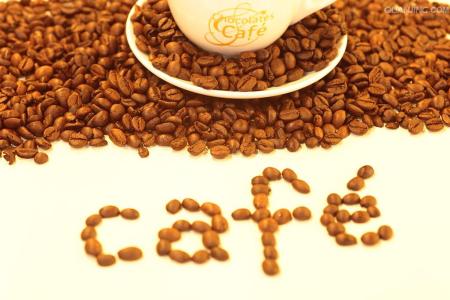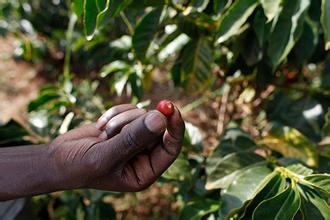Coffee extraction principles and rules Five ways to overdo what tastes like
Principles and rules of coffee extraction what is the excessive taste of the five methods of coffee extraction
First of all, let's talk about what's going on in the coffee handle. In this way, after pressing the coffee powder, because the coffee powder is solid, the water will accumulate in the gap between the brewing head and the coffee powder, resulting in the early extraction flow rate is too fine, resulting in excessive extraction, and the coffee powder will automatically expand when hot water passes through the coffee powder. the position of the powder will begin to rise, resulting in a large uneven gap between the coffee powder particles inside the coffee handle after a certain degree of expansion. The hot water will instantly penetrate the coffee powder in such a gap, resulting in insufficient extraction in the later stage.
Coffee extraction principle
There are a variety of coffee-making equipment and different methods, but the core extraction principles are all the same. The core process of coffee extraction principle:
1. Crush coffee beans to increase the surface area of coffee in contact with water
2. Coffee powder is fully soaked in aqueous solution, and coffee essence is hydrophilically dissolved.
3. Separate the coffee solution and coffee grounds.
All modern coffee extraction is the core process of soaking and filtration, which belongs to the category of physics, and there is basically no chemical change in the process (there are chemical changes in the brewing process of ESPRESSO). The differences in the thickness of coffee powder, the length of soaking time, the method of separation and filtration, and so on, have created a wealth of coffee making utensils and techniques.

Important Notice :
前街咖啡 FrontStreet Coffee has moved to new addredd:
FrontStreet Coffee Address: 315,Donghua East Road,GuangZhou
Tel:020 38364473
- Prev

Flavor and taste of coffee beans treated by natural de-pectin sun treatment and Brazilian half-sun treatment
The flavor and taste of coffee beans treated by sun and Brazilian half-sun the sticky pods of red fruits are removed and moved into a large tank followed by the most important water washing and fermentation to remove pectin shavings from the pods. This sticky material is not easy to wash away with water, so it is necessary to hydrolyze the pectin with various bacteria in the tank, decompose the pectin and rinse the beans in the tank.
- Next

How fine should coffee beans be ground?
How fine the coffee beans should be ground. 1) use the manual powder button and use an electronic scale to measure the powder weight. There will be an error of + /-0.2g when using manual pulverization. This is the conclusion we reached during the test, so you need to add or remove a little coffee powder to achieve the most standard weight. Some of our customers use small cups instead of handles when weighing them. You can, too.
Related
- What is the meaning of lactic acid fermentation with coffee bean treatment?
- How to judge the state of foam by sound?
- How does the latte pull out the unicorn pattern? Come to get for a little trick to improve the flower pull!
- Will flower pulling affect the taste of the latte?
- Do you know the history of coffee?
- The difference between honey treatment and sun washing what is raisin honey treatment?
- What kind of milk can a novice use to make coffee foam to keep the foam longer? The correct method and skills of milking tutorial sharing
- Why do washed coffee beans taste sour? Flavor characteristics of washed Coffee
- Introduction to the skill of how to practice the size and height of water injection around the circle of hand-brewed coffee
- How do beginners practice coffee flower drawing from scratch?

